Postdoctoral Fellows
Postdoctoral Fellow Profiles
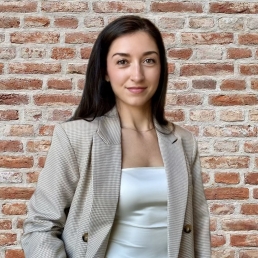
Cerra Antonacci
Cerra's postdoc research focuses on food insecurity, food environments, and health equity and spans several projects, including SNAPPER, which investigates the implementation and de-implementation of COVID-era SNAP policies, and StOREE, which examines the impact of racialized urban planning decisions on inequitable food environments and obesity disparities, among others.
Faculty Mentors: Julia Wolfson, Yeeli Mui
PhD: Behavioral, Social, and Health Education Sciences, Emory University Rollins School of Public Health, 2024
MHS: Johns Hopkins Bloomberg School of Public Health, 2019
MS: Bioethics, Johns Hopkins Bloomberg School of Public Health, 2018
BS: Psychology, Saint Louis University, 2016
Contact: cantona2@jh.edu

Khushbu Balsara
Khushbu's research focuses on global health systems and health policy, using a mixed-methods approach to manage non-communicable diseases—including injury prevention, mental health, tobacco cessation, and cancer disparities. I aim to strengthen health systems and reduce disparities through evidence-based interventions, such as integrating NCD services into primary care. In the Department, I develop capacity in research, public health, education, surgical care, and rehabilitation leadership through implementation science research. I use a mixed-methods approach to integrate injury prevention and post-trauma care, including rehabilitation, into primary care to strengthen health systems.
Faculty Mentor: Abdulgafoor M. Bachani
DDS: Sharad Pawar Dental College, Datta Meghe Institute of Higher Education & Research, 2020
MPH: Johns Hopkins Bloomberg School of Public Health, 2022
Contact: kbalsar2@jhmi.edu
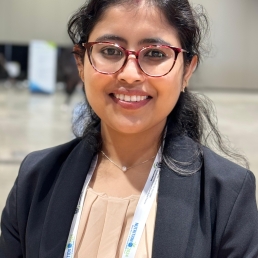
Sulagna Bandyopadhyay
Sulagna's research focuses on standardizing methods for measuring static and functional micronutrient biomarkers to evaluate the effects of micronutrient supplementation at incremental levels. Additionally, I provide field support in Bangladesh and oversee the management of field-to-lab processes. I am also involved in data analysis and publication efforts.
Faculty Mentors: Kerry Schulze, Parul Christian
PhD: St. Johns Research Institute (affiliated to Mysore University), 2022
Masters: The Maharaja Sayajirao University of Baroda, 2015
Undergraduate: University of Calcutta, 2013
Contact: sbandyo7@jh.edu
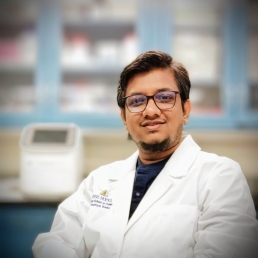
Soumya Basu
Soumya's current research is detecting pathogens from clinical samples (especially stool) and develop rapid diagnostic. Additionally, I work on genomic surveillance of infectious diseases concerned with vaccine trials.
Faculty Mentor: Subhra Chakraborty
PhD: Microbiology and Translational Bioinformatics, Vellore Institute of Technology, 2023
M.Sc.: Biotechnology, Utkal University, 2015
B.Sc.: Microbiology (Hons.), University of Calcutta, 2013
Contact: sbasu12@jh.edu

Alexandra Blackwell
Alexandra is a Postdoctoral Fellow in Global Mental Health funded by the National Institute of Mental Health. She specializes in implementation science for violence prevention and mental health promotion in conflict-affected populations. Her work includes mixed-methods evaluations of humanitarian interventions, human-centered and trauma-informed design in collaboration with clients and providers, and translating findings into action to support marginalized communities globally. Her current efforts include conducting a randomized controlled trial of an intervention to support conflict-affected families experiencing recruitment of children into armed forces and armed groups in the Central African Republic and adapting a youth violence intervention for trauma-affected adolescents living in diverse contexts.
Faculty Mentors: Kathryn Falb, Judy Bass
PhD: Social Intervention and Policy Evaluation, University of Oxford, 2024
MPH: Global Health Program Design, Monitoring and Evaluation, The George Washington University Milken Institute School of Public Health, 2017
BA: International Affairs, The George Washington University Elliott School of International Affairs, 2014
Contact: ablack40@jh.edu

Cyril Geismar
Developing mathematical models and software for epidemic forecasting in partnership with the CDC Centre for Forecasting Analytics.
Faculty Mentor: Shaun Truelove
PhD: Mathematical Modelling of Infectious Diseases - Imperial College London, 2025
MSc: Applied Infectious Disease Epidemiology, University College London, 2020
BSc: Philosophy, Politics and Economics, University College London, 2019
Contact: cgeisma1@jh.edu

Kamal Ghimire
Kamal’s research interests are in non-communicable diseases, particularly sodium intake, hypertension, cardiovascular diseases, and community-based interventions. His work includes mixed-methods approach to strengthen health systems and policies in low- and middle-income countries (LMICs), integrating evidence-based interventions into primary care. His current postdoc research—Scaling Up Community-Based Non-Communicable Disease Research into Practice in Pokhara Metropolitan City of Nepal (SCALE-NCD)—aims to evaluate a locally adapted intervention through a hybrid type 2 effectiveness-implementation design. The intervention includes regular home visits by trained Female Community Health Volunteers (FCHVs) and frequent mobile phone messages (m-Health) targeting adults with hypertension, diabetes, and/or tobacco use.
Faculty Mentor: Dinesh Neupane
PhD: Public Health, Torrens University Australia, 2024
MSPH: Public Health, University of Southern Denmark, 2017
BPH: Public Health, Institute of Medicine, Tribhuvan University, Nepal, 2009
Contact: kghimir1@jh.edu
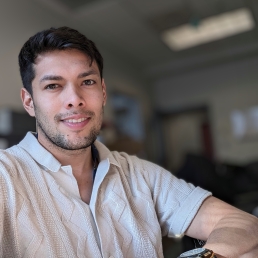
Sneider Gutierrez Guarnizo
I study tropical diseases, focusing on Chagas disease and Leishmaniasis caused by T. cruzi and Leishmania parasites. My research aims to understand the genomic variability of these parasites, molecular mechanisms regulating gene expression, host-pathogen interactions in human infections, and drivers of disease progression. By integrating basic and clinical research, I aim to propose new strategies for controlling, treating, or preventing these diseases, ultimately improving the quality of life for those affected by these neglected tropical infections.
Faculty Mentor: Robert H. Gilman
PhD: Universidad de Antioquia, 2022
Undergraduate: Universidad del Tolima
Contact: sgutie14@jh.edu
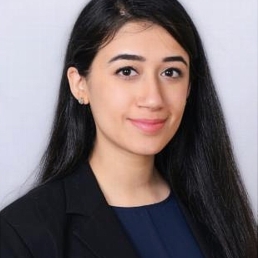
Maryam Khan
Maryam’s research focuses on implementation science and health systems strengthening in low- and middle-income countries (LMICs). She uses a mixed-methods approach to evaluate community-based strategies, particularly for noncommunicable disease prevention and control. Her postdoctoral work on the Scaling Up Community-Based NCD Research into Practice in Pokhara Metropolitan City of Nepal (SCALE-NCD) project, a hybrid type 2 implementation study, evaluates the effectiveness, scalability, and sustainability of a task-sharing intervention delivered by Female Community Health Volunteers (FCHVs) for hypertension, diabetes, and smoking cessation. Maryam also contributes to the Countdown to 2030 for Women’s, Children’s and Adolescents’ Health, supporting global communications and knowledge translation to promote evidence use and strengthen health systems and monitoring capacity in LMICs.
Faculty Mentors: Dinesh Neupane, Agbessi Amouzou
MBBS: Ziauddin University (Pakistan), 2021
MPH: Epidemiology and Biostatistics, Johns Hopkins Bloomberg School of Public Health, 2024
Contact: mkhan126@jhu.edu
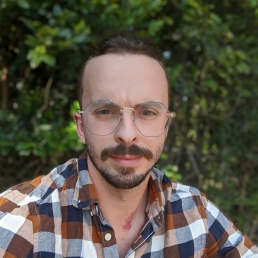
Joshua Macdonald
Joshua is currently co-leading influenza scenario modeling and working on developing a network model incorporating household size and contact structure to help the Navajo epidemiological center enhance planning and preparedness for future respiratory virus epidemics and pandemics.
Faculty Mentor: Shaun Truelove
PhD: Mathematics, University of Louisiana, 2022
MS: Mathematics, University of Louisiana, 2020
BA: Mathematics, University of North Carolina at Asheville, 2016
Contact: jmacdo16@jh.edu
Rahwa Mesfin
Rahwa’s research focuses on addressing food insecurity and improving nutrition in Ethiopia, with a particular emphasis on emergency response and resilience-building efforts. She is actively involved in initiatives such as the Joint Emergency Operation Program (JEOP), which delivers vital food assistance to over a million households, as well as the Ifaa Project, which aims to enhance food security and resilience in drought-affected rural areas of the Oromia Region. In addition to this, Rahwa collaborates with the Johns Hopkins Center for Humanitarian Health, where she contribute to research efforts aimed at improving health outcomes in humanitarian contexts.
Faculty Mentor: Shannon Doocy
MD: Mekelle University, 2020
MPH: Johns Hopkins Bloomberg School of Public Health, 2025
Contact: rmesfin1@jh.edu
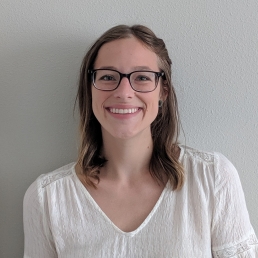
Kimberlyn Roosa
Kimberlyn's research utilizes mathematical models to explore and understand infectious disease trends. I am particularly interested in the impact of interventions, both community and individual level, on the overall population health dynamics.
Faculty Mentor: Shaun Truelove
PhD: Public Health, Georgia State University, 2020
MPH: Epidemiology, Georgia State University, 2017
BS: Mathematics, University of South Carolina, 2015
Contact: kroosa1@jhu.edu
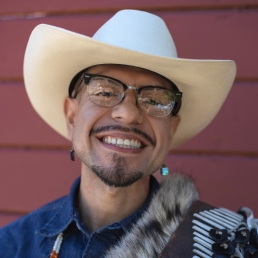
Valentín Quiroz Sierra
Dr. Sierra leverages Artificial Intelligence to develop culture-based suicide preventive interventions for Native American youth. Their research integrates AI-driven models with Indigenous knowledge systems to address the unique social, historical, and structural challenges faced by tribal communities.
Faculty Mentor: Emily Haroz
PhD: Social Welfare, UC Berkeley School of Social Welfare, 2024
MSW: Social Welfare, UC Berkeley School of Social Welfare, 2020
BA: Native American Studies (with highest honors), UC Davis, 2017
Contact: vsierra4@jh.edu
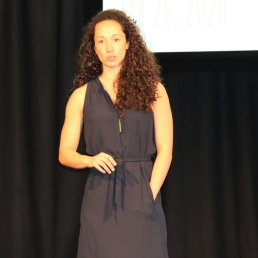
Hariata Tai Rakena
Hariata’s research employs strengths-based approaches to health promotion and cultural revitalization with Indigenous communities. Her doctoral dissertation research focused on joy as a protective health outcome activated via cultural immersion with an Ojibwe youth camp. Hariata currently leads a project in partnership with an Indigenous community where they are reclaiming their traditional lifeways via canoe paddling as a physical activity practice, along with cultural teachings, and land-based education.
Faculty Mentor: Melissa Walls
PhD: International Health, Johns Hopkins Bloomberg School of Public Health, 2025
MA: Physical Health Education Pedagogy, McGill University, 2021
Graduate Diploma: Māori language, Auckland University of Technology, 2015
BA: Māori Language | Indigenous Studies, University of Canterbury, 2010
Diploma: Sport and Exercise Science, Auckland University of Technology, 2016
Contact: htairak1@jh.edu
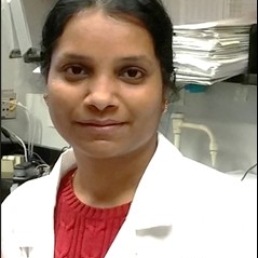
Chitradevi Sekar Tamilselvi
Chitradevi's research work involves performing serological functional assays in vaccine and challenge models. Perform other immunological assays to determine the immune responses to different vaccine specific antigens.
Faculty Mentor: Subhra Chakraborty
PhD: Life Sciences, Bharathiar University, India, 2014
M.Sc. Microbiology, Annamalai University, India, 2007
Contact: csekart1@jh.edu
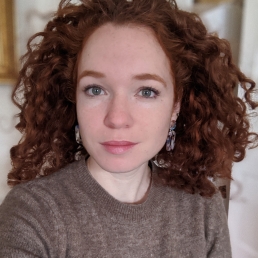
Liz Thomas
Liz's current focus is an evaluation of a backyard poultry management intervention in rural Bangladesh, which aims to provide insights on best practices for hygiene interventions to incorporate domestic animal management as part of their effort to reduce exposure to animal feces. She is exploring long term outcomes of the intervention, risk factors for children's exposure to animal feces and intervention approaches to reduce exposure to animal feces while maintaining the positive contributions of domestic animals to household health and livelihood. Her other current research includes: One Health and hygiene integration; mixed-methods formative research for context-specific interventions; and measurement of psychosocial factors that influence behavior and health outcomes.
Faculty Mentor: Peter Winch
PhD: International Health, Johns Hopkins Bloomberg School of Public Health, 2021
MSPH: International Health, Johns Hopkins Bloomberg School of Public Health, 2014
BA: Government, College of William and Mary, 2009
Contact: liz.thomas@jhu.edu

Mauricio Torres-Martinez
Mauricio is a physician and postdoctoral fellow whose work bridges global health systems, health policy, and Latino health equity. His research centers on injury prevention, with a focus on road safety and drowning prevention across Latin America and other low- and middle-income countries. He is also deeply committed to advancing Latino health through both research and community building. He is contributing to critical work on understanding Chagas disease perception in Latino communities, and co-founded the Latino Alumni Network, an initiative that connects Hopkins-trained professionals dedicated to addressing public health challenges of regional significance. Through his work, he seeks to strengthen health systems and advance evidence-based policies that reduce health inequities among vulnerable populations worldwide.
Faculty Mentors: Abdulgafoor M. Bachani, Andres Vecino Ortiz
MD: Instituto Tecnológico de Estudios Superiores y de Monterrey (ITESM), 2023
MPH: Johns Hopkins Bloomberg School of Public Health, 2025
Contact: mtorre32@jh.edu

Ekua Yeboah
Ekua's current research is working on the BREACH-TB trial which is part of the SMART4TB consortium. BREACH-TB is phase III non-inferiority clinical trial which is investigating the use of Bedaquiline as a pan-TB preventative therapy regimen.
Faculty Mentor: B. Aletta Nonyane
MBChB: University of Ghana Medical School, 2018
MPH: Epidemiology and Biostatistics, Johns Hopkins University, 2024
Contact: eyeboah4@jh.edu
